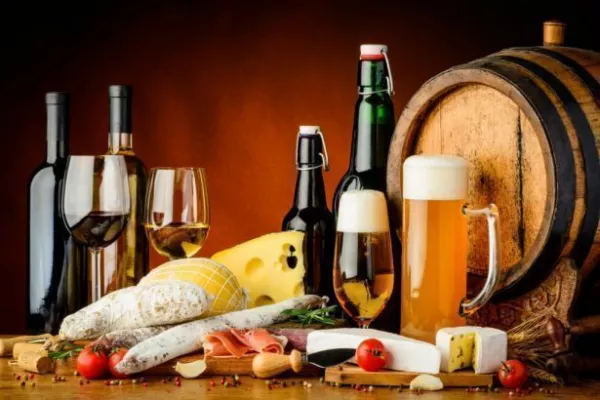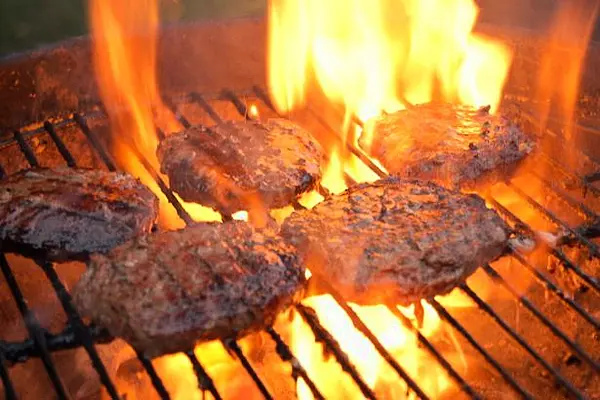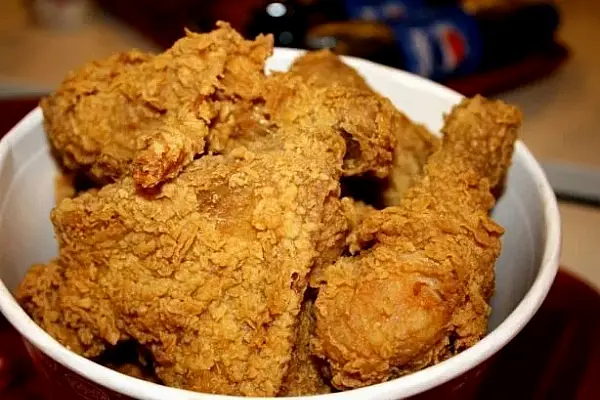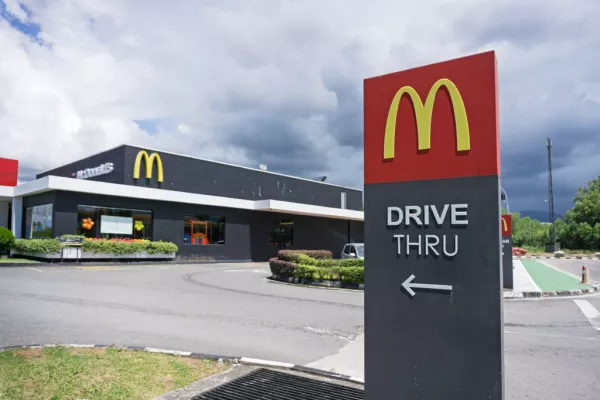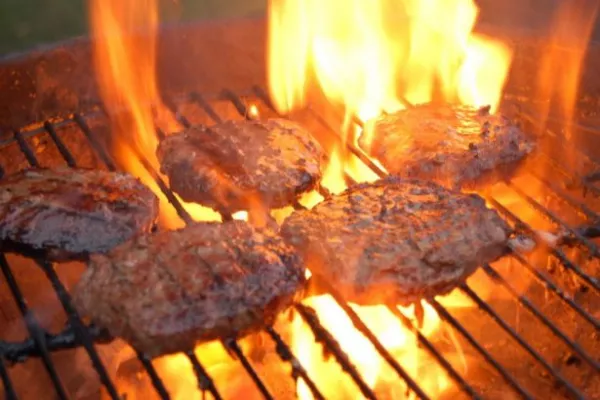Hospitality Ireland presents a round-up of global drinks, restaurant, food and pub news.
World Wine Production Set To Slip But Demand Picking Up, OIV Says
World wine production could fall this year to one of its lowest levels on record due to harsh weather in Europe, while demand is expected to recover to near levels seen before the coronavirus pandemic, an international wine body said on Thursday November 4.
In initial projections for 2021, the International Organisation of Vine and Wine (OIV) pegged world production at between 247.1 million and 253.5 million hectolitres (mhl), with a mid-range estimate at 250.3 mhl.
This would mark a third consecutive year of below-average output and approach the 2017 level of 248 mhl, the smallest in six decades, the OIV said.
One hectolitre is the equivalent of 133 standard bottles.
A drop in production in Italy, Spain and France, the world's largest wine producers, would outweigh what is forecast to be the highest-ever volume in the southern hemisphere, the OIV said.
Vineyards in western Europe were hit by spring frosts, while French producers also endured heavy rain, hail and mildew disease.
Global consumption trends were encouraging, with first-half data suggesting a rebound despite ongoing disruption to tourism and hospitality linked to the coronavirus pandemic, the OIV said.
"We still expect the global consumption to increase compared to 2020," Pau Roca, the OIV's director general, told reporters, noting first-half trade data showed volumes above pre-pandemic levels.
A shift to online sales had also helped the wine industry during the pandemic, he added.
However, an expected decline in Chinese demand could limit an annual rise in consumption to around 2% this year compared with a 3% drop in 2020, the OIV said.
In the European Union, production was forecast to fall to 145 mhl, down 13% from last year, it said.
In the southern hemisphere, favourable weather should allow high output in major producing countries, except for New Zealand, the OIV said.
Total output for the southern hemisphere was projected at a record 59 mhl, up 19% from last year.
U.S. production was forecast to rise 6% from last year to 24.1 mhl, although summer drought in some regions was expected to keep the volume below the five-year average.
The body did not give a 2021 production forecast for China due to a lack of harvest data, but said it expected a structural decline since 2016 to continue.
Ivory Coast Has Stopped Cocoa Export Contract Sales For 2021/22 - Regulator
Ivory Coast has stopped sales of export contracts for the current 2021/22 season as the harvest is on track to come in 10% below last year, the head of the cocoa sector regulator told Reuters.
Yves Brahima Kone, director general of the Cocoa and Coffee Council (CCC), said he maintained an earlier forecast that this season's harvest would be up to 250,000 tonnes less than last year's record due to insufficient rain in June to August.
"If we consider that production will be down this year, we have finished our sales for this year," he said.
Cocoa production hit an all-time high last season, with over 2.3 million tonnes of cocoa beans received at the ports of Abidjan and San Pedro, according to CCC sources.
Sales of contracts for the 2022/23 season are ongoing. As of last week, these had reached around 500,000 tonnes with a discount of 150 pounds sterling ($202) per tonne to the Ivorian price, which includes country-specific uplifts, five export sources said.
Ivory Coast has been locked in protracted negotiations with global cocoa buyers after it introduced a $400-per-tonne farmers' premium on beans, known as the Living Income Differential (LID), last season to help curb farmer poverty.
Exporters have been pushing for steep discounts because the LID, plus a so-called country premium added to reflect bean quality, made beans from Ivory Coast more expensive, while the coronavirus pandemic helped cause a supply glut.
Kone acknowledged the continued discount was eroding the benefits of the LID for farmers. "We have to make adjustments to the original differential to keep the LID intact," he said.
Ivory Coast and neighbouring Ghana, the world's second top cocoa producer, will discuss how to do this at consultations in November, he said.
Panera Bread To Go Public Again In IPO Backed By Shake Shack Founder's SPAC
Panera Bread plans to return to public markets through a U.S. initial public offering backed by Shake Shack founder Danny Meyer's blank-check company, the latest in a flurry of restaurant listings this year as dining out returns.
Meyer himself will directly invest in the Panera Bread owner at the time of the IPO, Panera Brands said on Tuesday November 9, and become the lead independent director of the company's board.
Typically, special purpose acquisition companies (SPAC) are shell firms raised with the intent of later merging with a private entity to take it public. In the case of Panera, Meyer's USHG Acquisition Corp will invest following the IPO.
After the listing, a unit of Panera Brands will merge with USHG Acquisition for $287.5 million and the proceeds will be invested in the restaurant chain owner.
The IPO plan comes four years after European investment firm JAB Holdings took Panera private in a deal valued at approximately $7.5 billion, with the sandwich chain's return coming at a time when people are heading to restaurants again after months of ordering in during lockdowns.
Coffeehouse Dutch Bros Inc, donut chain Krispy Kreme and hot dog maker Portillo's Inc also went public this year.
Shares of USHG Acquisition were up nearly 8%.
J.P. Morgan is acting as financial adviser to Panera Brands, while USHG Acquisition will be advised by Piper Sandler & Co.
DoorDash To Charge Up Growth With €7bn Deal For Europe's Wolt
DoorDash Inc said on Tuesday November 9 that it would buy Finland-based rival Wolt Enterprises OY in an all-stock deal valued at approximately €7 billion, as the biggest U.S. food delivery firm expands into Europe.
A pandemic-driven boom in demand for services offered by DoorDash and rivals is expected to ease in the coming months, but with most companies still losing money while seeking scale, the stage is set for a wave of consolidation.
DoorDash's deal would be one of the biggest yet in the space following Just Eat Takeaway.com $7.3 billion acquisition of American rival Grubhub and Uber Inc's $2.65 billion deal for Postmates Inc last year.
DoorDash's shares surged nearly 19% in after-market trading on the acquisition that helps the company enter 22 additional markets, including Germany, Serbia, Croatia, Denmark and Sweden, as well as a beat on third-quarter revenue.
Analysts have said DoorDash had been gearing up to launch in Germany and Mexico for some time now.
Wolt, since its first delivery in Helsinki, Finland, in 2015, has grown to expand in Europe and Asia and has over 30,000 restaurant and retail partners.
The company had more than 2.5 million monthly active users, as of Sept. 30, while DoorDash exited third quarter with over 9 million members using its subscription service.
"Joining forces with Wolt will...allow us to accelerate our international growth, while elevating our focus on the U.S.," DoorDash Chief Executive Tony Xu said in a statement.
The deal would allow DoorDash "to play for a bigger prize on an even larger global stage", he said on an earnings call.
Wolt and DoorDash said they expect combined adjusted core earnings to be between breakeven and $500 million in 2022, with the deal expected to close in the first half of next year.
Nearly two-thirds of Wolt's gross order value, a metric totaling value of all orders and subscription fees, brings in positive contribution profit, DoorDash said, adding that it would not share further details.
DoorDash equity issued as part of the deal will be valued at $206.45 per share, the companies said.
Separately, DoorDash said third-quarter revenue rose 45% to $1.28 billion, topping estimates of $1.18 billion, according to Refinitiv IBES.
Chocolate Maker Barry Callebaut Confirms Targets, Ups Dividend
Swiss chocolate maker Barry Callebaut confirmed its mid-term targets and raised its dividend on Wednesday November 10 after a recovery in its restaurant business in Europe helped profit and volume growth beat forecasts in its 2020/21 financial year.
The global chocolate market has seen sluggish growth recently, but Barry Callebaut is doing better thanks to pandemic-weary customers returning to cafes and bakeries for chocolate cakes while big food groups are still keen to outsource chocolate production to the Zurich-based group.
"As we get out of the pandemic, we'll see traditional distribution channels come back strongly and that will further help us to grow and accelerate the performance," Chief Executive Peter Boone, who took over in September, told reporters on a call.
He said the company's policy of passing on higher raw material costs to customers didn't mean Barry Callebaut was immune, but offered some protection in the current inflationary environment.
Cocoa bean prices fell in 2020/21 due to a large cocoa bean surplus, but Boone said he expected improving demand to lead to a more balanced situation in the current fiscal year.
The world's biggest chocolate maker, which recently extended its chocolate supply agreement with Hershey, said its net profit for the year to Aug. 31 rose by 20.4% to 384.5 million Swiss francs ($421.60 million), ahead of a forecast for 378.2 million francs in a Refinitiv poll of analysts.
Sales volumes increased by 4.6% and revenue reached 7.208 billion francs, the group said, also beating forecasts.
It confirmed its target of average annual volume growth of 5%-7% in the three-year period to 2022/2023.
Barry Callebaut raised its dividend by 27% to 28 Swiss francs per share for 2020/21.
Its shares, up less than 3% so far this year, were indicated to open 0.9% higher in a lower market.
Former Chief Executive Antoine de Saint-Affrique, now CEO at Danone, was proposed to join its board of directors.
Takeaway.com Shareholder Repeats Call To Divest Grubhub
Investor Cat Rock, one of the largest shareholders of online food ordering company Just Eat Takeaway.com, on Wednesday November 10 renewed its call for the company's management to divest its U.S. arm GrubHub.
The call comes a day after DoorDash, which is larger than GrubHub in the United States, made a big move into European markets with a €7 billion acquisition of Finland-based Wolt Enterprises OY.
Cat Rock, which holds a 6.5% stake in Takeaway, said selling or spinning off the Grubhub would improve the valuation of Takeaway, which has lagged peers over the past year, and allow it to defend its positions in Europe.
Amsterdam-based Takeaway, Europe's largest meals ordering company, completed its $7.3 billion acquisition of GrubHub in June.
Takeaway has responded to criticsm from Cat Rock and other investors last month by noting that it has only recently acquired GrubHub and has plans to defend it against competitors such as Uber. The company could not immediately be reached for comment on Wednesday November 10.
Takeaway's shares were down 3.7% to 6€0.71 by 0817 GMT on Wednesday November 10, and are 34% lower in the year to date.
Roaring Twenties? Cocktails In Vogue At British Pub Chain Wetherspoon
Call them "old fashioned" but younger drinkers have been ordering more cocktails, vodka and rum, Britain's J D Wetherspoon said on Wednesday November 10, with beer sales slipping as older people go to the pub less often.
Pub chain Wetherspoon and Britain's wider hospitality industry, which were pummelled by the COVID-19 pandemic and are now also battling staff shortages and supply woes, are navigating a long road to recovery.
"In the last 15 weeks, there has been a considerable increase in sales of the range of drinks often consumed by younger customers," Wetherspoon said in a statement, noting cocktail sales had jumped 45%, vodka by 17% and rum 26%.
By contrast, draught drinks, more often favoured by older pub goers, have been "under pressure," it said. Sales of traditional ales slid 30% while those of stout fell 20%.
Wetherspoon's shares slipped 4% to 993 pence by 0856 GMT on Wednesday November 10 after the company also reported an 8.9% drop in like-for-like sales for the 15 weeks to Nov. 7.
The figures come about a month after Wetherspoon, one of Britain's biggest pub groups which is often referred to by its younger customers simply as "Spoons", reported a larger loss for the year ended July 25.
"A material proportion of our trade comes from older customers, some of whom have visited pubs less frequently in recent times," Wetherspoon Chairman Tim Martin said.
While there have been no COVID-19 outbreaks among customers in Wetherspoon pubs, some had been "understandably cautious", Martin said, adding that any improvement in trade will depend to some extent "on the outlook for the COVID-19 virus".
Wetherspoon said trade had been positive in many cities and towns contrary to some forecasts, including its own.
Its pubs in central Liverpool, Newcastle Upon Tyne and Oxford all showed double-percentage-digit sales increases, while sales in central London slumped 17.4%.
Supply chain problems have eased in recent weeks, it said, while noting that the "busy Christmas period is yet to come".
Staffing issues may have also eased, it said, with a "reasonable level" of job applications, while its employees had increased 14% from April to more than 42,000.
DoorDash Surges On $8bn Takeover Deal To Jump Start International Expansion
Shares of DoorDash Inc jumped 16% on Wednesday November 10 after the U.S. food delivery firm inked an $8 billion deal to buy Finnish startup Wolt to grab a slice of the European market and maintain its blistering pace of growth.
The deal will help DoorDash enter 22 new markets, including Germany, Denmark and Sweden, while potentially serving approximately 700 million customers.
"(The move) jump starts international expansion," BTIG analyst Jake Fuller said, adding that if it were not for the acquisition, it would have taken DoorDash much longer to reach international markets through "an organic build-out."
At least eight brokerages cheered the deal by raising their price targets on the stock. Evercore analysts said a challenge for DoorDash prior to the deal was its lack of international presence.
The takeover is expected to help DoorDash maintain its growth momentum seen during the pandemic. Analysts are estimating a 65% surge in revenue this year, according to Refinitiv data.
"This partnership is really about acceleration and expansion, to play for a bigger prize on an even larger global stage," DoorDash Chief Executive Officer Tony Xu said on a conference call on Tuesday November 9.
Through the all-stock deal, Wolt - which made its first delivery in Helsinki, Finland in 2015 - would be valued at about three times its expected gross order value of $2.5 billion
"(The deal) speaks volumes that DoorDash would rather buy a sector challenger for more than its own trading multiple than to acquire incumbents at one-third of the valuation," Jefferies analysts said.
DoorDash shares, which have nearly doubled since their initial public offering in December, were trading at $223.50 before the bell.
Wendy's Profit View Squeezed By Rising Commodity Costs, Labour Crunch
Wendy's Co on Wednesday November 10 projected annual profit below market estimates as a widespread labour shortage and rising costs of raw materials eat into the fast-food chain's margins, sending its shares down 4% in premarket trading.
The company said it expected annual adjusted earnings between 79 cents and 80 cents per share, compared with analysts' average estimate of 82 cents, according to Refinitiv.
A worker crunch in the United States has made it difficult for restaurants to ensure adequate staffing, forcing some to hike wages and others like Domino's Pizza to cut store hours.
The industry has also reeled under a surge in prices of raw materials from chicken to edible oils and higher freight costs.
Wendy's company-operated restaurant margin, a key measure of profitability, declined to 14.4% in the third quarter from 16.9% a year earlier.
Its U.S.-same store growth of 2.1% also fell short of expectations of 4.4% as rivals McDonald's and Taco Bell parent Yum Brands launched new menu items and collaborated with celebrities to lure more customers.
But the Dublin, Ohio-based restaurant chain reported a 14.7% jump in same-store sales at its international restaurants, trouncing estimates of a 9.1% rise.
Wendy's also increased its share buyback plan to $300 million, as part of which it would launch a $125 million share repurchase program in the current quarter.
Total revenue rose 4% to $470.3 million in the three months to Oct. 3. Wendy's earned 19 cents per share on an adjusted basis, edging past estimates of 18 cents.
Takeaway.com Shares Slip As U.S. Rival DoorDash Enters Europe
Just Eat Takeaway.com's shares slipped on Wednesday November 10 after news that U.S. rival DoorDash is entering the European market, prompting a key shareholder to call for a strategy change at Europe's largest food delivery firm.
Cat Rock, which holds a 6.5% stake in Takeaway, renewed calls for it to sell U.S. arm Grubhub and put the proceeds to work defending its market positions in Europe.
The call comes a day after DoorDash, which is larger than Grubhub in the United States, made a big European move with the €7 billion purchase of Finland-based Wolt Enterprises OY.
After experiencing rapid growth during the COVID-19 pandemic, established European food ordering companies such as Takeaway, Deliveroo and Delivery Hero are braced for consolidation and competition with a new generation of quick grocery and delivery companies.
Shares in Amsterdam-based Takeaway, which completed its $7.3 billion acquisition of Grubhub in June, were down 5.1% to €59.84 at 1340 GMT on Wednesday November 10 and are now 35% lower in the year to date.
CEO Jitse Groen responded to suggestions that DoorDash's move could threaten Takeaway.com in Germany by saying: "Our business in Germany is bigger than the whole of Wolt worldwide".
"Its competitive position is better than Doordash('s) in the US. But if you want to believe in fairy tales then I accept I cannot change your views," Groen added on Twitter.
Cat Rock said in a presentation that Grubhub would be more valuable in the hands of a larger competitor interested in expanding its same-day delivery abilities.
A sale would also improve the valuation of Takeaway, which has lagged peers over the past year, and allow it to invest more heavily in defending its positions in Europe, Cat Rock added.
Takeaway responded to criticism from Cat Rock and other investors last month by noting that it has only recently acquired Grubhub and has plans to defend it against competitors such as Uber.
A Takeaway spokesperson said that it had no further comment "at this stage".
Beyond Meat Signals More Pain Ahead As Demand Slows, Shares Tumble 19%
Beyond Meat Inc forecast fourth-quarter revenue below estimates on Wednesday November 10, as the once red-hot plant-based meat maker reported slowing demand in both grocery stores and restaurants, driving its shares down 19% in extended trading.
The company, which generates the bulk of its revenue from retailers, had cut its third-quarter revenue forecast last month as it took a hit from fewer people stockpiling plant-based burgers and sausages at home after they returned to dining out.
However, Beyond did not sell as many products at restaurants during the quarter either.
Sales of its faux meat fell at fast-food locations when the Delta COVID-19 variant hit and labor shortages caused restaurants to cut hours and trim menus, Chief Executive Officer Ethan Brown said in an earnings call.
Sales to U.S. retail stores fell 15.6% to $52.4 million in the third quarter, Beyond said, while those to U.S. restaurants fell 7.3% to $15.1 million.
In October, McDonald's Corp said it will test a plant-based patty made by Beyond in its McPlant burger at eight U.S. locations. Beyond is also working on products for other global chains including Pizza Hut and KFC, both owned by YUM Brands Inc.
Widespread supply chain problems and labor shortages at Beyond's own facilities and a transportation provider also hampered operations, as did water damage related to severe weather that destroyed "sizeable amounts" of packaging at a Pennsylvania storage center.
Brown said the company is focused on long-term growth, including through restaurant partnerships and continued international expansion.
"The only reason we gave more tepid guidance on fourth quarter is just because we didn't want to go through this again," Brown said.
"My view...is to get through the year with these unusual conditions and get back to a strong resumption of growth, which I feel very confident about for 2022," he said.
The company said it expects fourth-quarter net revenue of $85 million to $110 million, compared with analysts' estimates of $131.6 million, according to IBES data from Refinitiv.
"This is going to be one of those quarters Beyond will want to erase from its memory. Unfortunately, it seems like many of these issues will persist through at least 4Q," wrote CFRA analyst Arun Sundaram.
Net revenue rose 12.7% to $106.4 million in the three months ended Oct. 2, but missed estimates of $109.2 million.
Excluding certain items, the company reported a loss of 87 cents per share, compared with analysts' estimates of a loss of 39 cents per share.
"Count Me In, I Love It!": U.S. Rep Ocasio-Cortez Raves Over Scottish Soda Irn-Bru
U.S. Representative Alexandria Ocasio-Cortez gave a thumbs-up to the cherished caffeinated Scottish soft drink Irn-Bru personally delivered to her by Scotland's First Minister Nicola Sturgeon at the United Nations COP26 climate summit in Glasgow.
Advertised as Scotland's other national drink, the first being whisky, Irn-Bru is 100 years old and is colloquially known as a hangover cure.
"I like it! Will bring some cans home to NY (New York) for sure!," the U.S. congresswoman wrote in an Instagram post on Wednesday November 10, alongside a video of her trying the bright orange fizzy soda.
Ocasio-Cortez said earlier on the social media platform that she was trying to get her hands on the drink, in response to a question on whether she had tried any Irn-Bru during her visit to Glasgow for the climate summit.
"Where do I find it?? Do y'all have bodegas here??" she added jokingly.
Sturgeon then joined in the fun by posting on Twitter a picture of herself handing Ocasio-Cortez a can of Irn-Bru.
Irn-Bru has 32 flavouring agents, its maker A.G. Barr PLC says on its website, and even has its own orange and blue tartan.
The tartan is a symbol of Scotland and its historical roots, with the country's various clans each having a separate pattern.
In the video, Ocasio-Cortez says the drink reminds her of Kola Champagne, another soda popular in Latin America.
"I was so shocked at having something in Glasgow that tasted like HOME," she wrote on the Instagram post. "Count me in, I love it!"
Delivery Hero Upbeat On Revenues, Decided Against Wolt Offer
Delivery Hero on Thursday November 11 nudged its 2021 revenue outlook up towards the upper end of its previous forecast, as the online takeaway food company benefits from its ongoing investments in food delivery and so-called quick commerce.
The German group has grown rapidly during the coronavirus crisis and has invested heavily in highly competitive quick commerce, which aims to deliver goods in as little as 10 to 15 minutes.
The boom in home delivery demand during the pandemic has attracted more companies into the business, which is already starting to spur a consolidation wave.
U.S. rival DoorDash this week said it would buy Finland-based Wolt in a acquisition valued at approximately €7 billion.
Delivery Hero CEO Niklas Oestberg said the group had also been involved in the process leading up to the deal, but had decided against making an offer.
Oestberg said the deal would not have a material impact on Delivery Hero, as the company's European operations are "relatively small", under 7% of its business.
Delivery Hero now expects to report 2021 revenue and gross merchandise volume at the upper end of its earlier forecast ranges, as it stepped up the number of Dmarts - centrally located dedicated warehouses that cater only to online clients - to 861 from 704 at the end of June.,
"The growth in the number of Dmarts is impressive and a statement of intent around the sector's hottest theme," a Jefferies analyst said.
Delivery Hero shares were up 2.6% at 0934 GMT on Thursday November 11, topping the German blue-chip index.
Oestberg noted the DoorDash deal with Wolt could affect some other European players, pointing to the price tag as a sign that other U.S.-based groups may expand into the market.
"We looked into the numbers but we decided not to participate in an offer, as we understood that the price expectation was way beyond what we could actually pay," Oestberg said.
"We've been trying to focus on being number one in our markets," he said, adding that Wolt would not materially change the story.
Delivery Hero decided earlier this year to relaunch operations in Germany, stepping up competition in the home market it quit three years ago to focus on Asia, which makes up approximately 50% of revenues.
News by Reuters, edited by Hospitality Ireland. Click subscribe to sign up for the Hospitality Ireland print edition.
